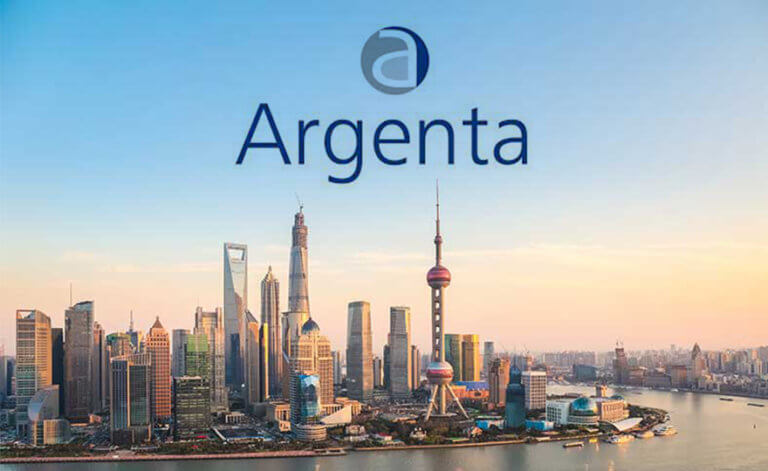Argenta’s Lloyd’s China exit puts spotlight on costs, scale
December 10 2021 by Andrew Tjaardstra
This week’s news that Argenta has pulled out of Lloyd’s China after six years shows once again that Asia’s diverse markets are not always smooth sailing for the global (re)insurance community.
One senior broker based in Greater China told InsuranceAsia News (IAN) that there are higher costs to write business on the Lloyd’s China platform as it works as an insurance company model with higher management fees than London and Singapore.
“Unless your Chinese business is core it’s not worth it — you can write the business from London,” the broker said.
Prior to exiting the platform, Argenta had two members of staff in Shanghai and the operation used its Syndicate 2121 — part of Argenta Underwriting Asia which is overseen by Singapore-based principal officer Scott Sykes.
Argenta Syndicate Management, a subsidiary of Argenta Holdings, said in a statement that it will cease underwriting all new and renewal business relating to the Lloyd’s China platform with immediate effect and put the operation into run-off.
Argenta has said it will work with Lloyd’s China to continue servicing the existing business and ensure the run-off is done in “orderly fashion”. The Lloyd’s player underwrote a large number of reinsurance lines including marine hull and war, marine cargo, upstream energy, treaty reinsurance, property facultative, terrorism and political risks.
“The decision to withdraw our support from the Lloyd’s China platform has not been taken lightly and will enable us to simplify operations and focus on the development of our London underwriting base and other international platforms,” said Andrew Annandale, managing director and CEO of Argenta Syndicate Management, in a statement.
Falling Lloyd’s GWP
Argenta’s withdrawal could bring opportunities for other syndicates that have a presence in Lloyd’s China writing the some of the same lines, such as Beazley, Chaucer, Markel and Munich Re Syndicates.
Lucien Mounier, the head of Beazley’s Asia Pacific operations, told IAN that China was an important market for the company and that it had an underwriting team of two people on the Lloyd’s platform in the country.
However, Argenta’s move comes amid the backdrop of falling premiums in recent years and Antares also pulled out of Lloyd’s China in February saying it would instead write any China business from Singapore instead.
A spokesperson for Lloyd’s told InsuranceAsia News that it is committed to the China market and that it would continue to provide capacity for specialist insurance and reinsurance business.
“The Lloyd’s China platform is a gateway for our business partners locally so they can continue to gain access to our expertise and specialty risk solutions,” the spokesperson said.
Lloyd’s data shows that gross written premium in Lloyd’s China declined 17% to US$374 million in 2020.
The senior broker also told IAN there have been some deteriorating margins on Chinese business.
Slowing growth and poorer underwriting returns are a double whammy in insurance. In addition, strict travel conditions on entering the country as a result of Covid-19 have added another negative for (re)insurers and brokers.
These restrictions, some tough regulatory action from Beijing as well as a looming debt crisis has also impacted sentiment toward’s the country’s overall economic growth.
The next question is whether this trickle of exits from the Lloyd’s platform in Shanghai turns in to a torrent.
While the market clearly has many challenges, China remains one of the fastest growing economies in the world and there is plenty of room for further risk management sophistication.
-
HSBC Asset Management | The hunt for diversification and performance revitalizes appetite for Asian currency bonds
With diversification and performance high on investors’ agendas, it seems a good time for global portfolios to revive allocations in Asian local currency bonds – including Hong Kong dollar (HKD) bonds.
-
PineBridge Investments | Why Asian insurers are exploring private credit and CLOs
The recent rollout of risk-based capital regimes across Asia calls for a closer alignment between insurers’ assets and liabilities. We explore potential ways to maintain a healthy investment yield and robust returns on regulatory capital.
-
Peak Re | Emerging Asia middle class: A catalyst for change
Rising demand for elderly care and women driving consumption growth mandate carriers to develop precise solutions to meet customer expectations.
-
Guy Carpenter | Private equity’s reshaping of the Asian life sector has further to run
PE-backed reinsurers provide access to asset classes and investment expertise that often don’t exist within the traditional carriers themselves.
